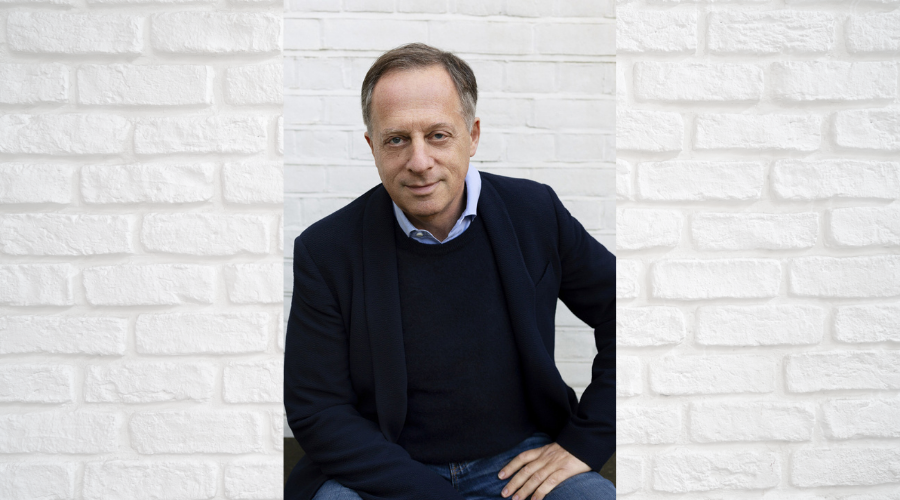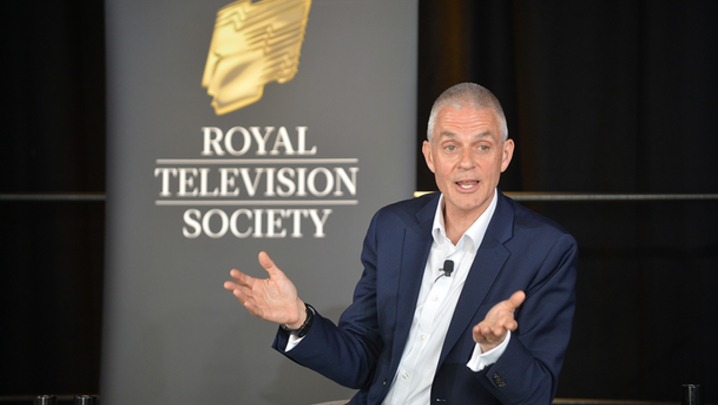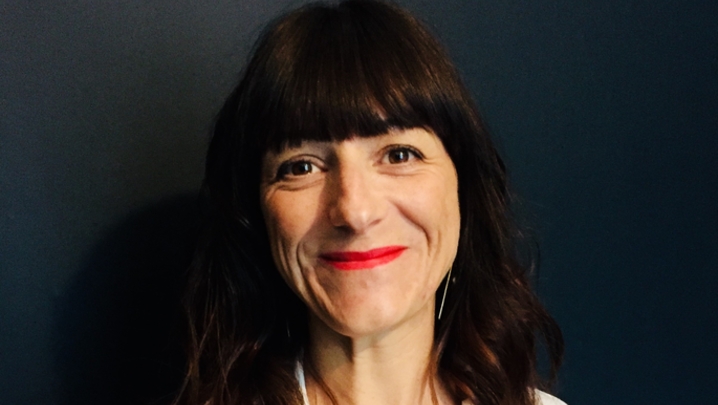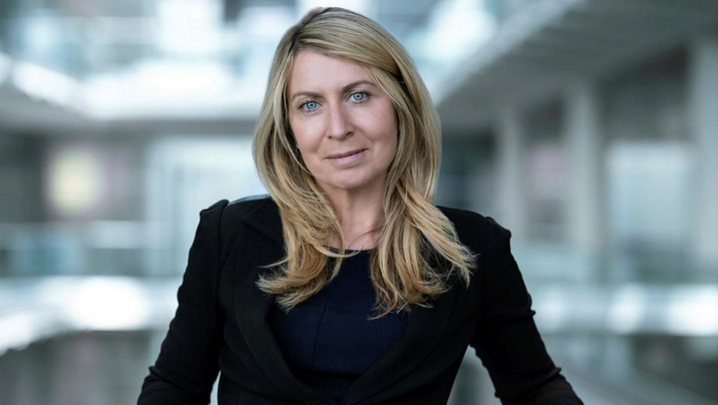The BBC’s new Chair, Richard Sharp, the former Goldman Sachs banker helping to steer the BBC through challenging times, is profiled by Steve Clarke.
There is already something of a buzz around Richard Sharp, the new BBC Chair, and about what he and Director-General Tim Davie might achieve together as they navigate the corporation towards what we all hope is a post-Covid world.
Inevitably, not everyone at the BBC was pleased that another money man was chosen as successor to Sir David Clementi – himself a former deputy governor of the Bank of England. But many across the TV sector were relieved that a more controversial candidate was not appointed.
“I genuinely welcome Richard Sharp’s appointment,” says Sir Peter Bazalgette, ITV’s Chair. “It is a very good appointment for the BBC.”
This kind of enthusiasm for Sharp, who started his new job last month, is not difficult to find within TV, not least because the new Chair was pivotal in helping to secure the Treasury’s creative industries relief package, the £1.57bn Culture Recovery Fund, so important to helping at least some TV freelancers keep their heads above water during the past year.
Pact CEO John McVay, who was fundamental to brokering the deal, says: “Excuse the pun but Sharp by name, sharp by nature. He asked me what was the one thing stopping production restarting? I said insurance. We’ve got everything ready to go but we can’t switch on the cameras again because no one will insure us.
“Because we can’t get insurance, no one will invest. He doesn’t understand how production works, but he got it and took me to task with some very tough questioning.”
McVay adds: “He’s very acute, inquiring and will bring a powerful intellect to the BBC at a time when it needs to think quite profoundly about it’s future.”
Others, too, draw attention to Sharp’s intellect, a lightning-quick mind, and a staccato way of speaking that resembles machine-gun fire.
Following his encounter with McVay, Sharp then opened the door for Pact to Rishi Sunak – the Chancellor had worked for Sharp at Goldman Sachs and brought him in as an adviser to the Treasury last spring during the first lockdown.
“At the time, several broadcasters contacted him to ask his advice about things such as bank loans,” says an old friend. “This was long before anyone mentioned him as a potential BBC Chair. He was more than willing to offer his help.”
This praise for Sharp is not shared by the Labour Party. Alastair Campbell, Tony Blair’s former spin doctor, has tweeted: “So the march to the moneyed right goes on apace. New BBC Chair super-wealthy ex-Goldman Sachs boss of, and lately assistant to, Sunak. The anti-public service contingent really are getting all their people in on the inside now.” However, Blair’s Government appointed millionaire economist Gavyn Davies, another Goldman Sachs high-flyer, as BBC Chair.
On paper, Sharp’s establishment credentials are abundant: the son of a successful businessman who was later elevated to the House of Lords, privately educated and who, after reading PPE at Oxford, spent more than 30 years in investment banking. He sat on Boris Johnson’s board of economic advisors when Johnson was London mayor.
Sharp has reportedly donated more than £400,000 to the Conservative Party since 2001 and was on the board of the Centre for Policy Studies, a centre-right think tank. He has said that he will donate his £160,000 BBC salary to charity.
However, this background doesn’t tell the whole story. “Richard’s got quite a lot of non-establishment instincts. That makes him very different to David Clementi, who is establishment through and through,” says someone who knows him well. “He will be much more difficult for the great leviathan that is the BBC to capture than some of his predecessors. Richard can be quite a handful.”
Nevertheless, Sharp brings to the BBC a direct route into the heart of the Government. “The Government has appointed their appointee to run the BBC,” says Bazalgette. “He is the best person to get a reasonable deal on funding out of the Government.”
I think I won the lottery in life to be British and, if I can make a contribution, I couldn’t be happier to
In the light of the recent shake-up of personnel at No 10, there is more optimism that the BBC can build on its achievements during the pandemic without having to deal with too many hand grenades from Downing Street.
The BBC needs to take urgent action to make more than £400m-worth of cuts that are due within a year. Simultaneously, it also needs to deflect any blowback as it extracts itself from a former commitment to pay the TV licences of all over-75s. In this context, Sharp’s commercial acumen should prove useful.
When Sharp was grilled by the Commons’ Digital, Culture, Media and Sport Committee in January, he said that the licence fee was “the least worst” way of funding the BBC. He said he had an “open mind” about how the corporation should be funded in the future, and that it “may be worth reassessing” the current system. “At 43p a day, the BBC represents terrific value,” Sharp told MPs.
“Judged by his performance at the select committee, Richard clearly believes in the BBC, although it will have many reforms made to it in the next five to 10 years,” opines Bazalgette.
“We’re all a product of our upbringing and I was very fortunate with the parents I have; my great-grandparents came to this country escaping tyranny,” Sharp recalled at the select committee hearing. “I think I won the lottery in life to be British and, if I can make a contribution, I couldn’t be happier to.
“The BBC is part of all our identities, of all our national identities and offers education and enrichment and is also important for our position in the world.… It is a massive privilege to be Chair of the BBC.”
The new Chair’s cultural hinterland – he was Chair of the Royal Academy from 2007 to 2012 and co-founded the charity London Music Masters – is another factor that makes him well qualified for the job.
Jean Seaton, author of a volume of the official history of the BBC, says: “He has a background, and a real and vivid interest, in music, and must have demonstrated during the interview process a real hunger for a whole variety of content. To me, that’s the key.”
During the select committee hearing, the new Chair said he “inhales” BBC drama, highlighting Fleabag and Roadkill.
On the sensitive topic of diversity, there are those who think that having two Oxbridge-educated white men over 50 once again running the BBC is deeply anachronistic. Seaton, however, thinks Sharp and Davie have an opportunity to redress the balance by introducing some fresh, diverse talent to strengthen the BBC Board.
“Six members of the board are about to be replaced,” she says. “Provided he’s wise, he will be very active in composing the board so that it genuinely represents the variety of modern Britain. If you look at Davie’s targets on diversity, they’re both ambitious and realistic.”
Another BBC watcher says: “I think he’s going to shake up the board and hire some media gurus.”
What, then, of the critical question of how Davie and Sharp are likely to work together? Both possess keen commercial brains and will think creatively and imaginatively about future international initiatives beyond the BBC’s core UK public service activities. More partnerships and clever ideas may well be on the horizon.
“Sharp will be a good fit with Tim,” says a former BBC DG. “They have a lot in common.”
“They are both straight-talking guys,” says McVay. “I imagine they’ll have some robust conversations. That’s a good thing. For the BBC to survive, some profound, robust conversations are needed.”
As for the inevitable BBC crises that will involve Sharp in his new role, Seaton thinks it will mostly be water off a duck’s back. “Sharp looks like someone who thinks he’s going to enjoy himself at the BBC,” she says. “He will be unfazed by the BBC scandals that always emerge sooner or later.
“They won’t bother him. He doesn’t have that vulnerability that certain politicians have. Bankers don’t have that kind of personality. He’s a master of the universe.”







